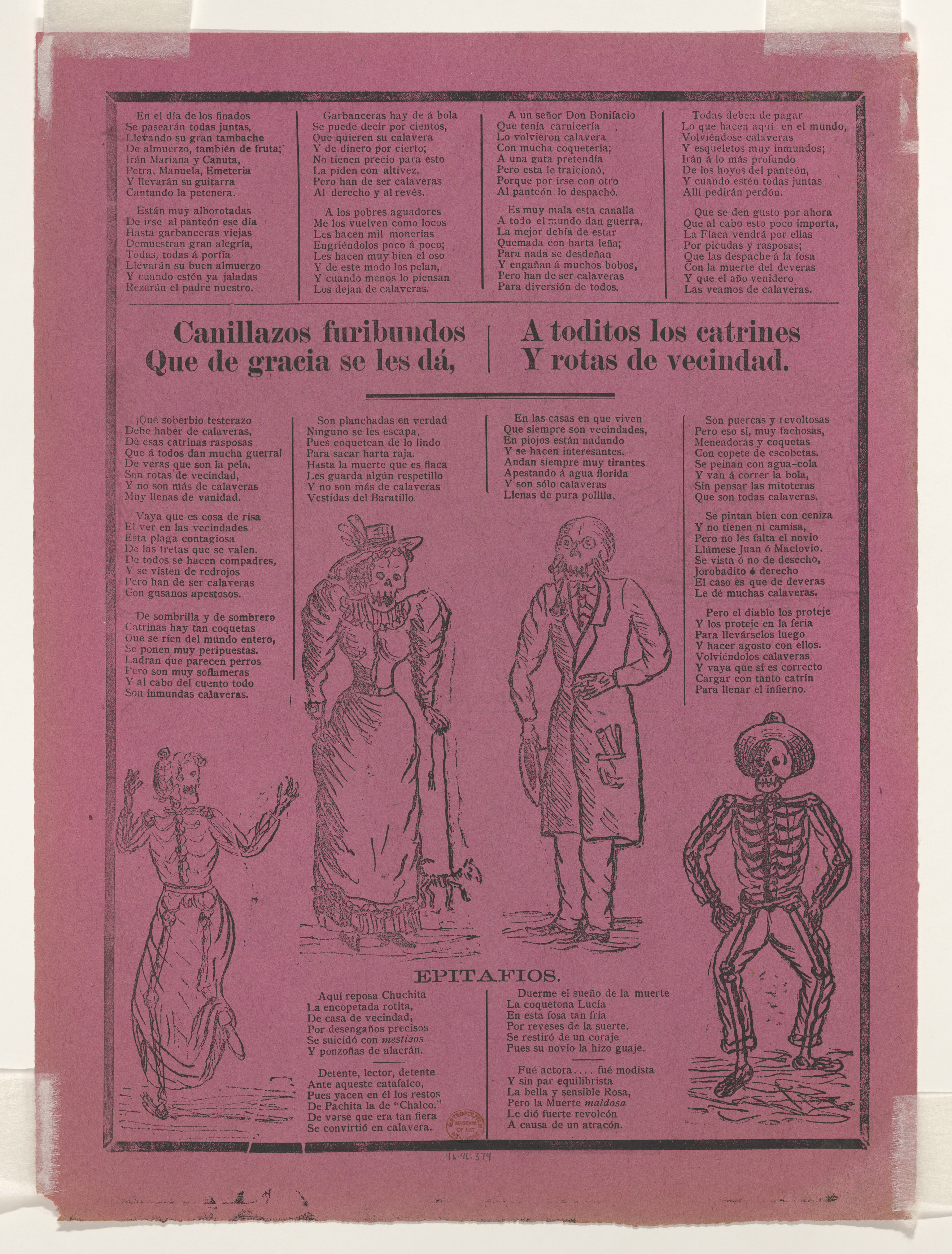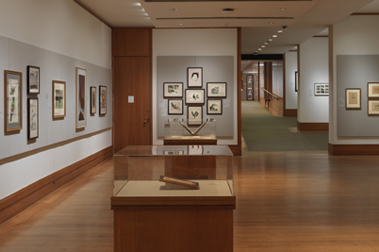Broadsheet relating to the elegant and pretentious skeletons that become decayed and fetid
J. Cortés Mexican
Publisher Antonio Vanegas Arroyo Mexican
Not on view
The term "garbancera" from the title was slang for an Indigenous person who denied their heritage and tried to look European—as have the two standing figures here. Written in a machismo tone, the text describes bad things that happen to men when they meet women, an idea represented by the image of a woman offering a skull to the man across from her. The text reminds the reader that death is always watching. Nothing is known of the artist except that he worked in the Vanegas Arroyo workshop around the same time as Posada.
El término «garbancera» visible en el título era un nombre coloquial usado para describir a los indígenas que renegaban de sus orígenes y trataban de parecer europeos, como las dos figuras que se muestran aquí. El texto, redactado en un tono machista, describe las cosas malas que le suceden a un hombre cuando conoce a una mujer, una idea representada por la imagen de una mujer que ofrece una calavera al varón que tiene enfrente. El texto recuerda al lector que la muerte siempre está observando. Nada se sabe del artista, excepto que trabajó en el taller de Vanegas Arroyo más o menos en la misma época que Posada.
This image cannot be enlarged, viewed at full screen, or downloaded.
This artwork is meant to be viewed from right to left. Scroll left to view more.




